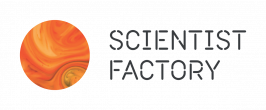Educational experiences
Learning from Experiences: Failing as the Path to Success.
When your child makes a mistake, there is no reason to despair. For making mistakes is the surest path to learning. It’s just a matter of learning from experience.
In fact, some believe that the more mistakes we make, the greater the likelihood of success. Engineers working in space exploration experience this in practice. Hundreds of failed attempts lie behind a successful launch.
Growth mindset: An approach to learning
Learning from mistakes is also central to the theory of a growth mindset, developed by Carol Dweck at Stanford. Mistakes are useful if we learn from them, she argues. Neuropsychological research supports this idea, but it’s not necessarily just about mistakes; it’s also about surprises. You can be surprised by making a mistake, but you can also be surprised by doing something right. In both cases, the brain is triggered, and attention to what we are learning increases. We treat sensory impressions with full attention and evaluate the results compared to the past. Surprise stimulates new effort and learning.
Feedback and learning
This process depends on feedback. That’s why it’s so important for children to receive prompt feedback on what they do. In some situations, you can use answers or computer programs that provide immediate feedback. In other situations, it can be very useful to test your own knowledge. What should I know? Can I answer? Were the answers correct?
If you, as a parent, are going to give feedback, there are many ways to do it, and all can work. Just be sure to ask your child how they experienced the feedback. Did they understand how to move forward? That is one of the most important aspects of feedback: getting help to take the next step.
Transferring knowledge to new contexts
Learning from experiences can also happen in another way. Then we transfer knowledge from one area or situation to another. We use what we have learned in a new context. It’s a skill that gradually develops as your child matures, and it’s called changing the frame of reference, a “frame of reference.” For example, take a child who is going to program a robot with arms and legs. Then experiences of how their own body moves can be transferred to the robot. Something similar happens when children build a cabin in the forest. They benefit from experiences they have had when playing with construction toys like Lego.
Discount on Advent Calendar!
Secure free shipping and save € 30 on our best advent calendar ever!
For over 20 years, we have inspired over 500,000 children to explore the exciting world of science. The Scientist’s Calendar is a different kind of advent calendar filled with play and knowledge instead of candy and sugar. The calendar contains 24 pre-wrapped packages with magical gadgets, astonishing objects, and engaging experiments for curious children between the ages of six and twelve.


